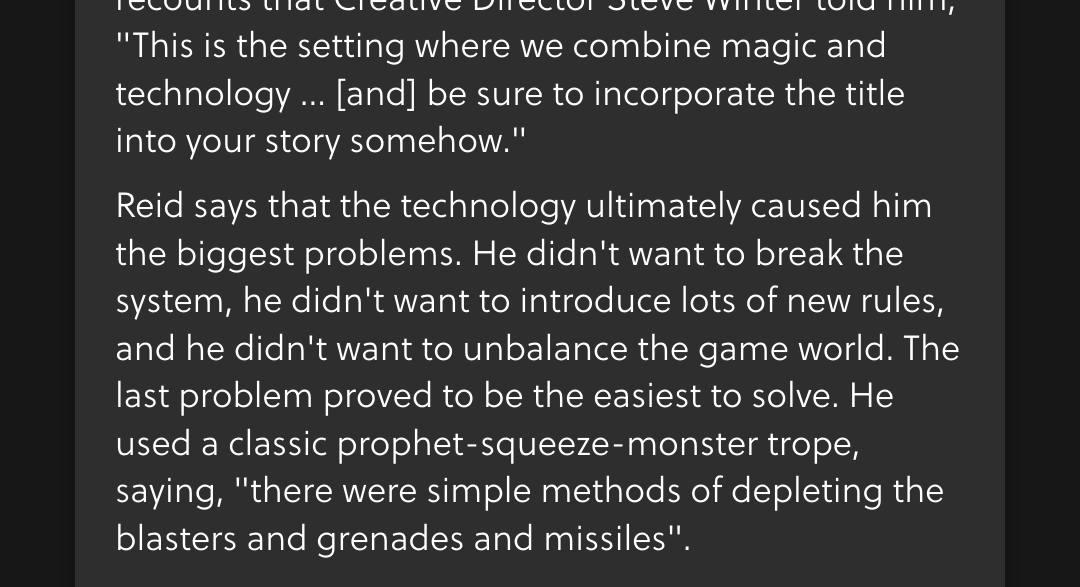I'm sure FOSS apps are less intrusive, but they still use notifications surely? I'd generally want a calendar or messager app to send me notifications, but I might want to block a specific app depending on my use case.
I don't know how it'd work but I'd be interested in something to deal with spam/scams. That annoying "Fediverse chick" thing, sure i blocked her, as can other individuals. And I guess the account could be flagged to whatever instance the account is registered to? But if it became a frequent problem, with bot account spamming people, it would be handy to have a way a tracking what accounts are getting blocked by lots of people.
Even if I wouldn't want to autoblock accounts just because they're unpopular, I might want to stop or mark as 'caution' private messages from "problem" accounts.
When I was getting settled on my dose the doctor told me to keep upping the dose until things got worse rather than better. And there was defintely a point (54mg xaggatin, a slow release concerta type) where it was too much, I didnt want to relax I just wanted to get shit done. I'm sure it could have been efficient but it didn't feel like me, and felt kinda stressy. So I've been on the dose below that (36mg) for a couple of years.
The amazing novelty wears off, and i can go back to my old avoidance routines, especially if I'm tired or sick, or anxious about something. But when my mood is good, and I'm taking care of myself, I can be efficient and focus on stuff well, while before that wad almost impossible unless I had a last minute deadline to panic me into focus.
The way I think about it is the drugs don't make it easy for me to focus, they just make it possible. So now I can do all those things people said before about breaking tasks down, and setting manageable goals and stuff to make tasks achievable. It's not easy, but it isn't easy for most people. It's just no longer impossible. But it takes a lot relearning, trying out things that wouldn't have worked before and it doesn't always work. But it's so much better than before.
Thanks! It's defintely more stuff like long term stuff, helping me schedule stuff or make appointments, reminding me to stop avoiding opening my mail, etc. And there's lots of stuff I help then with, their blindspots and weaknesses.
That's what I think makes a good relationship - being with someone with complementary skills, who you trust, who wants the best for you, and who it's a pleasure to help not just because you love them, but because what they find impossible is easy for you (and vice versa).
Hah ! No, quite the opposite. I do almost all the cooking and cleaning, because I like making my partner happy. But I can't find the motivation to do it for myself. When I was single, I would invite friends over for food as often as I could, because I love cooking, and I'd make exciting and challenging things that we'd all enjoy. But if it's just me I spend a few hours being indicisive and then just eat so much toast I feel sick and feel sad.
The structure my partner provides is someone who expects meals to be at meal times, and will judge me if I just start eating a family sized pack of snacks at 3pm because I'm peckish. Or will be disappointed if I promise to do something then just scroll my phone instead. At the time it annoys me not being free to indulge myself, but when I actually get the chance I realise how little I enjoy it. It's been really helpful to realise that just because I hate structure and rules and people's expectations... I hate the goblin I become without them much more.
Perhaps I don't think about cousins enough to have considered that. To me "sibling" refers to my brothers and sisters, and therefore extends naturally to "their kids" more than to other family members on the same generation. The old English word that sibling was revived from meant "kinfolk" and would have included all family whether brothers, nieces, cousins or aunts.
If I talk about "my nildren" it's maybe a bit too possessive, and "nids" Is gross, but I'd be open to other suggestions! Niblings is defintely kinda silly, which was part of the charm when they little anklebiters.
Ah, I didn't know that. A quick search suggests that most of the telemetry and tracking have been removed... But yeah, I might look at other options.
Can confirm. Licked the outside of a subway cart once. Truly horrific.
I just switched to librewolf and was recommended Fennec on my phone (so far so good!)
Totally understand the desire. I defintely do better when I'm in a situation where I can just deal with stuff in front of me, and someone else takes care of the long term stuff and keeps me accountable. Not sure about jobs, the army comes to mind but has some major downsides. But there's other similar gigs like the merchant navy and offshore workers, where you're living and working in a structured environment and then get a long breaks to chill out.
What worked for me was getting a partner who is organised and creates structure. Sometimes I think I miss my freedom and wish I was back being a bachelor... But then I have a few days in the house alone, getting nothing done as the mess builds up around me and not even playing games or anything fun, just failing to live... Then I remember why I traded my independence.
Nibling. Like sibling but for nephews and nieces. Helpful when describing them as a group, or unspecified, and also good if one ends up being somewhere less clear on the gender binary.

Defintely hook up.